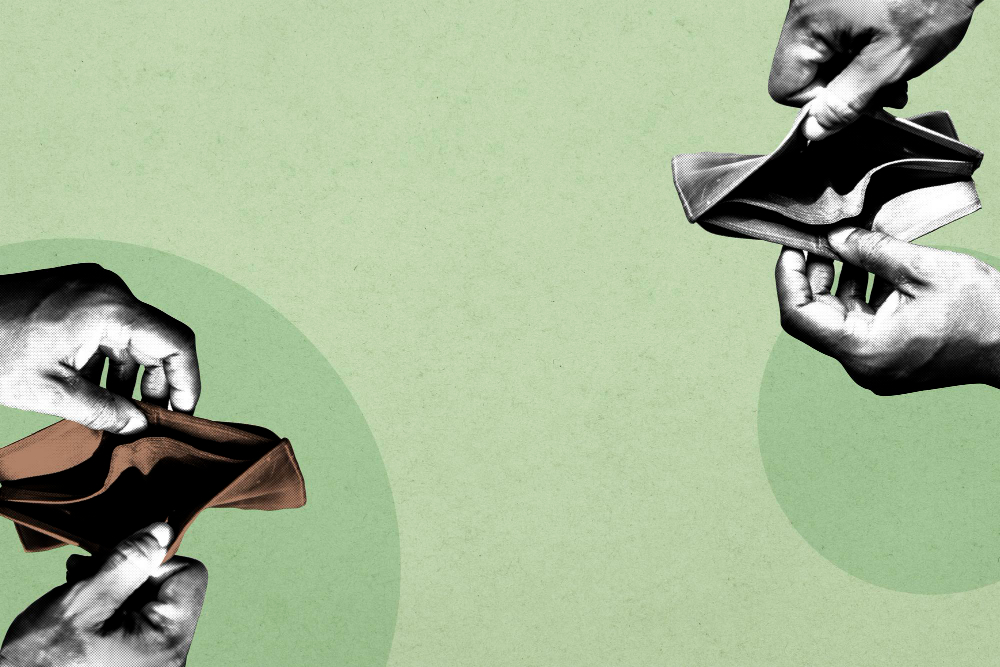
Discover the 5 ways of becoming broke and learn practical strategies to avoid them. Don’t let these pitfalls ruin your financial stability!
Are you tired of living from paycheck to paycheck? Do you dream of building a secure financial future? We all desire financial stability, yet many find themselves grappling with the burden of debt.
To pave your way toward financial freedom, it is crucial to identify the common pitfalls that can leave you broke and take steps to avoid them.
In this article, we will delve into the “5 ways of becoming broke” and provide you with actionable tips to break free from these financial traps.
The 5 Ways Of Becoming Broke And How To Avoid Them
1. Becoming A Slave To Lifestyle Inflation

The Deceptive World Of Lifestyle Inflation
How Keeping Up With The Joneses Can Drain Your Wallet
It’s natural for our desires to grow as our income increases. However, succumbing to lifestyle inflation can quickly deteriorate your financial health.
People often fall into the trap of upgrading their lifestyle, from buying bigger homes and newer cars to indulging in luxury vacations. This need to keep up with the trends only leads to a mountain of debt and financial instability.
Tips To Avoid Lifestyle Inflation:
1. Create a realistic budget: Plan your expenses based on your income and save a portion for future investments.
2. Don’t compare yourself to others: Focus on your own financial goals and define your own path to success.
3. Prioritize experiences over material possessions: Invest in experiences that enhance your well-being and create lasting memories rather than accumulating unnecessary stuff.
2. Failing To Budget

The Power Of Budgeting: Your Key To Financial Freedom
How A Lack Of Planning Can Leave You Penniless
One of the most common reasons people become broke is the lack of budgeting skills. Without a proper financial plan, it’s easy to overspend and find yourself in a sea of debt.
Tips To Create An Effective Budget:
1. Track your expenses: Monitor your spending habits to identify areas where you can cut back.
2. Allocate funds for savings: Prioritize saving by setting aside a percentage of your income before spending.
3. Embrace frugality: Look for ways to reduce expenses and find joy in simple and inexpensive pleasures.
3. Falling Into The Debt Trap

Drowning In Debt: Escape The Vicious Cycle
How Uncontrolled Borrowing Can Destroy Your Financial Future
Excessive debt can quickly drain your financial resources and leave you struggling to make ends meet. From credit card debts to high-interest loans, borrowing without proper planning can push you towards financial ruin.
READ ALSO: Simple Ways To Make Money With AI
Tips To Avoid Drowning In Debt:
1. Live within your means: Resist the temptation of purchasing goods or services that are beyond your current financial capacity.
2. Pay off high-interest debts first: Prioritize paying off debts with high interest rates to prevent them from snowballing.
3. Seek professional advice: Consider consulting a financial planner who can guide you in managing and reducing your debt effectively.
4. Neglecting Emergency Savings

Preparing For The Unexpected: The Importance Of An Emergency Fund
How Ignoring The Unexpected Can Break Your Bank
Life is unpredictable, and without an emergency fund, a single financial setback can cripple your finances. From unexpected medical expenses to sudden job loss, being ill-prepared for such situations can push you into a deep hole of debt.
Tips To Establish An Emergency Fund:
1. Set a savings goal: Aim to save a specific amount dedicated solely to emergencies, typically enough to cover six months of expenses.
2. Automate your savings: Set up an automatic transfer from your paycheck to your emergency fund to ensure consistent contributions.
3. Resist the urge to touch your emergency fund: Only dip into this fund in genuine emergencies, not for non-essential expenses.
5. Overlooking The Power Of Investing

Harnessing The Power Of Investments: Your Roadmap To Wealth
How Ignoring The Power Of Compound Interest Can Keep You Poor
Many people miss out on the opportunity to grow their wealth because they fail to recognize the power of investments. By not investing wisely, you lose the potential to multiply your money and secure your financial future.
Tips To Get Started With Investing:
1. Educate yourself: Understand different investment options and seek advice from financial experts to make informed decisions.
2. Start early: The sooner you begin investing, the more time your money has to grow through the power of compound interest.
3. Diversify your investments: Spread your investments across different asset classes to minimize risks and maximize potential returns.
FAQs
- What is lifestyle inflation, and how can I avoid it?
- Why is budgeting essential for financial stability?
- How can I get out of the debt cycle?
- How much should I save for my emergency fund?
- Why is investing crucial for building wealth?
In conclusion, becoming broke is not an inevitable fate but a culmination of poor financial decisions.




